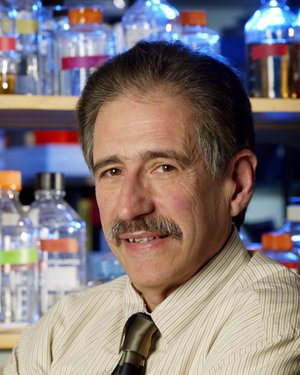Research Lab Results
-
Caren L. Freel Meyers Laboratory
The long-term goal of the Caren L. Freel Meyers Laboratory is to develop novel approaches to kill human pathogens, including bacterial pathogens and malaria parasites, with the ultimate objective of developing potential therapeutic agents. Toward this goal, we are pursuing studies of bacterial isoprenoid biosynthetic enzymes comprising the methylerythritol phosphate (MEP) pathway essential in many human pathogens. Studies focus on understanding mechanism and regulation in the pathway toward the development of selective inhibitors of isoprenoid biosynthesis. Our strategies for creating new anti-infective agents involve interdisciplinary research in the continuum of organic, biological and medicinal chemistry. Molecular biology, protein expression and biochemistry, and synthetic chemistry are key tools for our research.
-
William B. Guggino Lab
Work in the William B. Guggino Lab focuses on the structure of the cystic fibrosis transmembrane conductance regulator (CFTR) and water channels; the molecular structure of transport proteins in epithelial cell membranes; and gene therapies to treat cystic fibrosis (CF) patients. We are also working to identify CF’s specific defect in chloride channel regulation. One recent study showed that insulin-like growth factor 1 (IGF-1) enhances the protein expression of CFTR. -
Mass Spectrometry Core
The Mass Spectrometry Core identifies and quantifies proteins that change expression in well-characterized protein fractions from cancerous cells or tissues. This includes identifying and quantifying changes in binding partners and post-translational modifications. Column chromatography and gel electrophoresis-based one and two-dimensional separations of protein complexes coupled to mass spectrometry are used. Techniques such as difference gel electrophoresis (DIGE), isobaric tag for relative and absolute quantitation (iTRAQ) and 18O-labeling as well as non-labeling methods (MudPit, multi-dimensional protein identification technology) are available for quantifying relative differences in protein expression and post-translational modifications. We developed methods to detect post-translational modifications such as LCMS methods to accurately determine the intact mass of proteins, selective fluorescent labeling of S-nitrosothiols (S-FLOS) to detect nitrosated cysteines in proteins, and ion mapping methods to map post-translational modifications that produce a signature mass or mass difference when the modified peptide is fragmented. -
The Arking Lab
The Arking Lab studies the genomics of complex human disease, with the primary goal of identifying and characterizing genetics variants that modify risk for human disease. The group has pioneered the use of genome-wide association studies (GWAS), which allow for an unbiased screen of virtually all common genetic variants in the genome. The lab is currently developing improved GWAS methodology, as well as exploring the integration of additional genome level data (RNA expression, DNA methylation, protein expression) to improve the power to identify specific genetic influences of disease. The Arking Lab is actively involved in researching: • autism, a childhood neuropsychiatric disorder • cardiovascular genomics, with a focus on electrophysiology and sudden cardiac death (SCD) • electrophysiology is the study of the flow of ions in biological tissues Dan E. Arking, PhD, is an associate professor at the McKusick-Nathans Institute of Genetic Medicine and Department of Medicine, Division of Cardiology, Johns Hopkins University.


